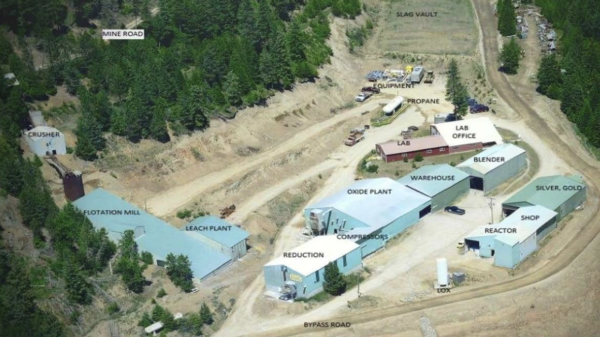The Mining Association of Canada (MAC) has come out against the 25 per cent tariffs placed on Canadian minerals and metals products.
Pierre Gratton, president and CEO of the association, issued a statement in response to the tariffs indicating that the tariffs run counter to American national security and economic interests.
Canada and the U.S. launched their partnership on critical minerals in 2020 under President Trump with the Joint Action Plan on Critical Minerals Collaboration.
Gratton suggested both of the effected countries focusing on deepening their collaboration rather than imposing tariffs. Also, Canada’s minerals and metals industry is prepared to strengthen ties with the U.S., ensuring a free flow of essential resources that support economic growth, defense capabilities, and technological advancement on both sides of the border.
According to Gratton, MAC members produce mineral and metal products that trade globally. If the U.S. imposes tariffs, Canada’s mining sector will seek new markets, strengthen existing alternatives, and find new sources for essential inputs to keep mining facilities running. These actions will hurt U.S. businesses.
“These tariffs will disrupt the essential flow of mineral and metal resources, exacerbate vulnerabilities in critical mineral supply chains that both nations have been working to address and raise the costs of doing business for our U.S. customers,” Gratton said.
The Mining Association of Canada also urges Canadian governments to seize this moment to eliminate long-standing barriers to economic growth, including internal trade restrictions, complex and costly regulatory processes, and uncompetitive tax policies. All levels of government must take decisive action to enhance competitiveness, attract investment, boost productivity, and drive prosperity.
Read more: Calibre Mining shuffles strength into its board for future growth
Read more: Calibre Mining highlights responsible energy usage in first-ever Climate Report
The mining sector employs 694K Canadians
The mining industry is a major sector of Canada’s economy, contributing USD$161 billion to the national GDP and accounting for 21 per cent of Canada’s total domestic exports. The sector directly and indirectly employs 694,000 people across the country. It is the largest private sector employer of Indigenous peoples in Canada and a key customer of Indigenous-owned businesses.
“Canada has long been a dependable partner, providing certainty to U.S. manufacturing and defense industries by serving as a major supplier of minerals and metals,” said Gratton.
“In 2022, 52 per cent of Canada’s mineral exports—valued at over $80 billion—were destined for the U.S.”
President Donald Trump has recently imposed significant tariffs on key trading partners, including a 25 per cent levy on imports from Mexico and Canada, and a 10 per cent tariff on Chinese goods. These actions are primarily aimed at addressing concerns such as drug trafficking and illegal immigration, as stated by the administration.
In response, Mexico has vowed to retaliate with its own tariffs, while Canada has expressed concerns over the potential economic consequences. China has condemned the tariffs and threatened legal action through the World Trade Organization.
Additionally, Trump has warned the European Union of future tariffs, signaling the possibility of escalating global trade tensions. This has raised concerns about the potential for a global trade war, with far-reaching implications for international relations and economic stability.
.
joseph@mugglehead.com












